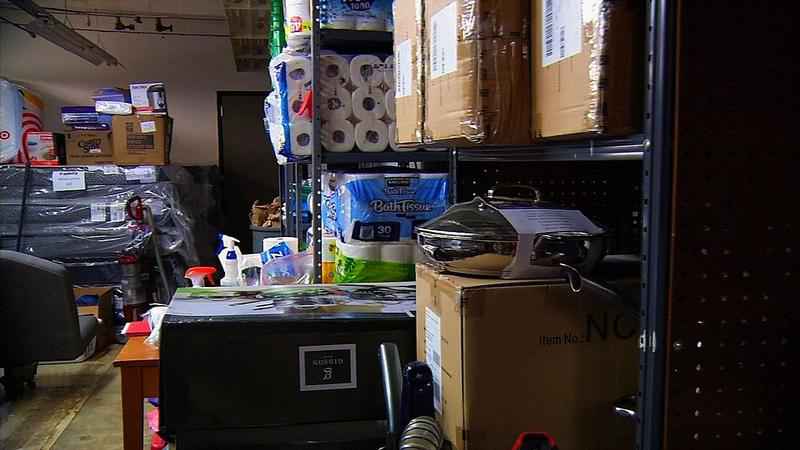‘So many are coming with just the clothes on their backs’: 2 Minnesota nonprofits team up to help Afghan refugees resettle
[anvplayer video=”5056910″ station=”998122″]
It’s a room of plenty for those who have lost almost everything, except for their freedom.
"One thing that’s really important in welcoming refugees to Minnesota is making sure that they have their basic needs met," said Kate Shermer, with Arrive Ministries.
Shermer says the group plans to help resettle up to 80 Afghan refugees by the end of the year. Some could arrive in Minnesota as early as the end of September.
The faith-based nonprofit, located in Richfield, is getting ready, stocking several rooms from floor to ceiling with thousands of donated items.
"We want to make sure they have beds, pillows, clothing, cooking utensils," Shermer explained. "Everything they would need to just feel like this is a place they could call home."

[KSTP]
The refugees are among thousands fleeing from Afghanistan, which is now under Taliban control.
"So many are coming with just the clothes on their backs, and that’s crazy to think about them leaving everything behind," said Shane O’Rourke, the CEO and founder of the nonprofit Lift Up.
O’Rourke and his friend, Jon Hansen, are partnering with Arrive using a crowdfunding website to raise money for security deposits for refugee housing, about $1,500 per unit.
"We’re going to put our arms around them," Hansen said. "We’re going to say, ‘We’re going to get you housing, we’re going to get you clothing, we’re going to get you beds and hygiene gear.’"
"To be able to tell a family that their security deposit will be covered and, you know, after their lease is up, they’ll actually have that security deposit to be able to pocket, will be such a benefit to them," Shermer added.
Arrive Ministries says the U.S. State Department reached out to its national affiliate, World Ministries, for help.
There’s even a list of agreed-upon donated items refugees would need.
"We provide welcome kits and there’s certain government-mandated items that are required so they can at least get started in forming their life and cultivating a new life," Shermer noted.
If people want to support Arrive, Shermer suggests donating gift cards.
Thirty-five of the refugees hold special immigrant visas, or SIVs. The government says these are people employed by the military as interpreters or security personnel and their immediate families.
Hansen, a retired U.S. Marine corporal who served in Afghanistan, says the refugees faced a near-impossible choice.
"A decision point for all of these Afghans is, ‘Do I leave everything I have and everything I know for the hope of safety somewhere else away from the Taliban?’" he said. "Whatever you may need, we’re here to support you, because you supported us in Afghanistan, serving alongside the armed forces for so long. We want to support you now."
Shermer says once the refugees are safely in Minnesota, resettlement teams from Arrive Ministries will be there to help.
"We have a department called resettlement emplacement," she said. "They are the department that meets refugees at the airport, greets them there, finds them housing and helps set up their apartments."
Both nonprofits say more challenges lay ahead for the refugees.
Arrive Ministries says it will have a case manager for each family. They’ll help the new arrivals navigate issues including finding employment, permanent housing, school enrollment and even finding a doctor’s office.
The arrangement lasts for three months, but Shermer notes the families will have that security deposit as a financial cushion.
"It’s really going to help ease that burden for some of these refugee families who need to be able to get settled for a few months," Shermer said. "To try to find a job, make enough income so they are able to pay their rent."
But even after that, there will be a support system in place.
Arrive has a volunteer branch called Good Neighbors. Teams from area churches or families will assist refugee families for an extended period.
Shermer says Arrive is partnering with agencies in St. Cloud and Rochester for their volunteer services.
"They will walk alongside these families for a year," Shermer explained. "So that provides friendship, often it does provide some sort of financial assistance or support in any way they need it."
The hope is these efforts will help the families to assimilate as they begin new lives in Minnesota.
"It’s incredibly urgent, there’s a language barrier. If you can imagine, as soon as they hit… feet on the ground here, they’re essentially in need of everything," O’Rourke said. "As soon as we can get that to them, it’s going to make a life-changing impact for them."